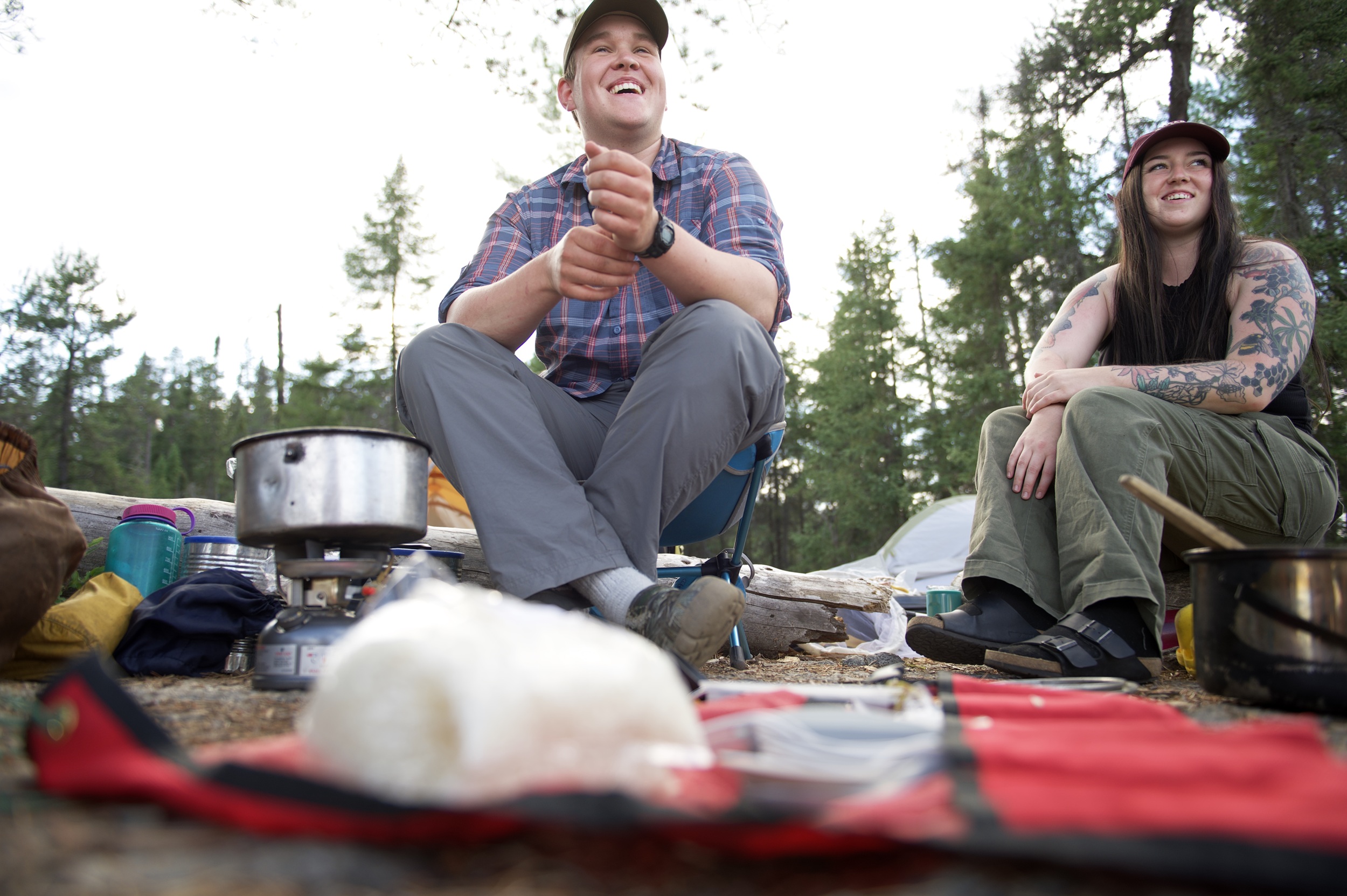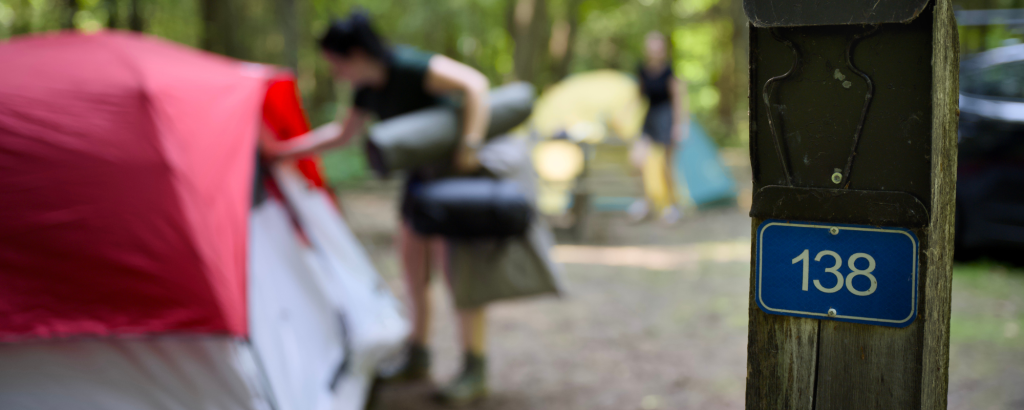
You did it!
You booked your first camping trip…now what?
Here’s how you can prepare for your first overnight outing outdoors:
~
1. Keep it fresh
Storing your food is the one of the most important aspects of camping, especially if you’re going on a longer trip.
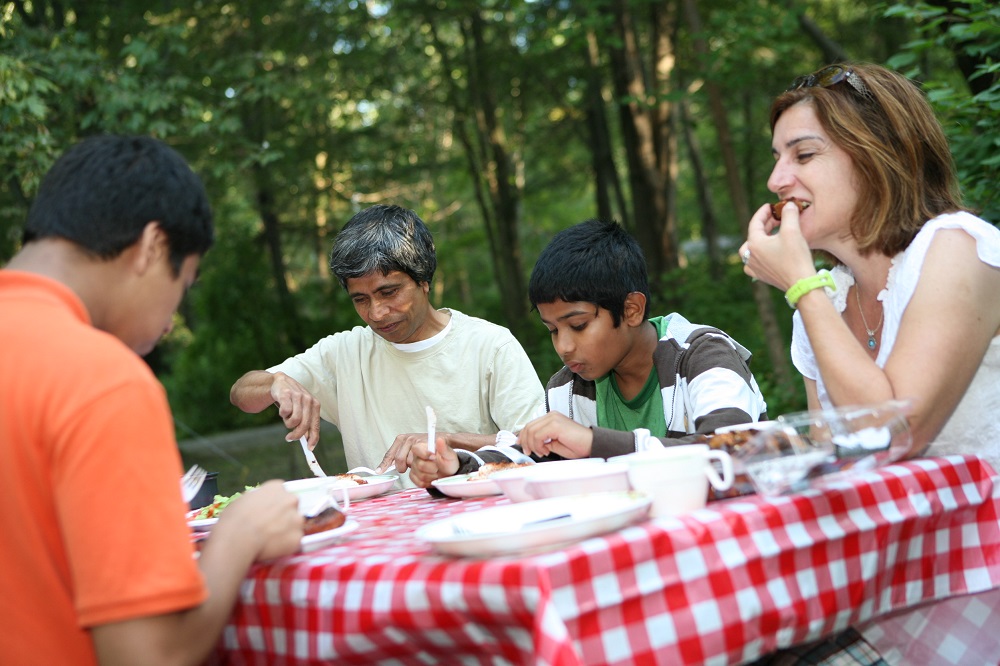
A large, well-insulated cooler with a lid and drain plug will serve you well at your campsite.
Before you leave, pack your cooler responsibly.
Prep your food and freeze what you can (meat, sauces, soups, etc.). Your frozen food will help keep your cooler colder! Pack your ice at the bottom, followed by the meat and dairy, then pack the rest of your cooler based on the order you’re using the food.
Remember to keep your food in tightly sealed bags and containers so they don’t get soggy from the melting ice!
~
2. Keep it in your fire pit
Before thinking about starting a fire, check Ontario Parks’ alert page for any possible fire bans at your park.
Firewood is for sale at most parks. Please don’t bring your wood from home. If you do, you could be spreading insects and plant diseases that threaten the health of our forests.
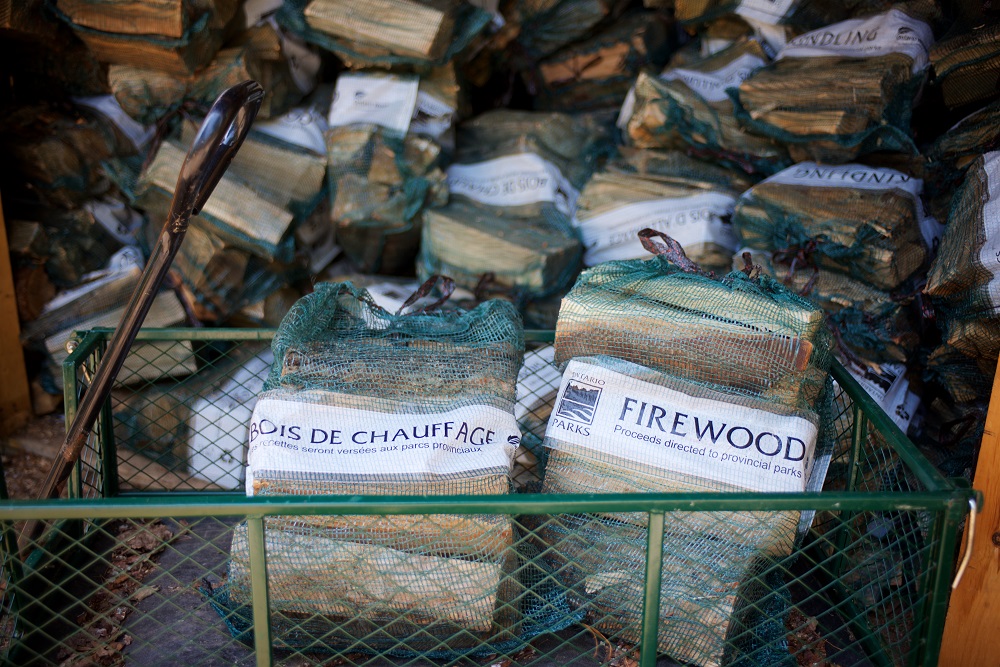
Keep your campfire in the designated fire pit located on your site. Clear any pine needles, leaves, or grasses around the pit, and keep your fire small!
A fire over one metre has the potential to cause serious damage. Did you know recreational forest users are responsible for 200 wildfires per year?
Once you’ve enjoyed your campfire and are ready to call it a night, use the following steps to put your fire out:
- pour lots of water on the campfire
- stir the ashes with a stick
- pour more water over top of it
Repeat these steps until the ashes don’t hiss and everything looks wet.
~
3. Prepare for bugs
There are countless positive aspects of spending time outdoors. With those positives come the inevitable negatives. Namely: mosquitoes and black flies.
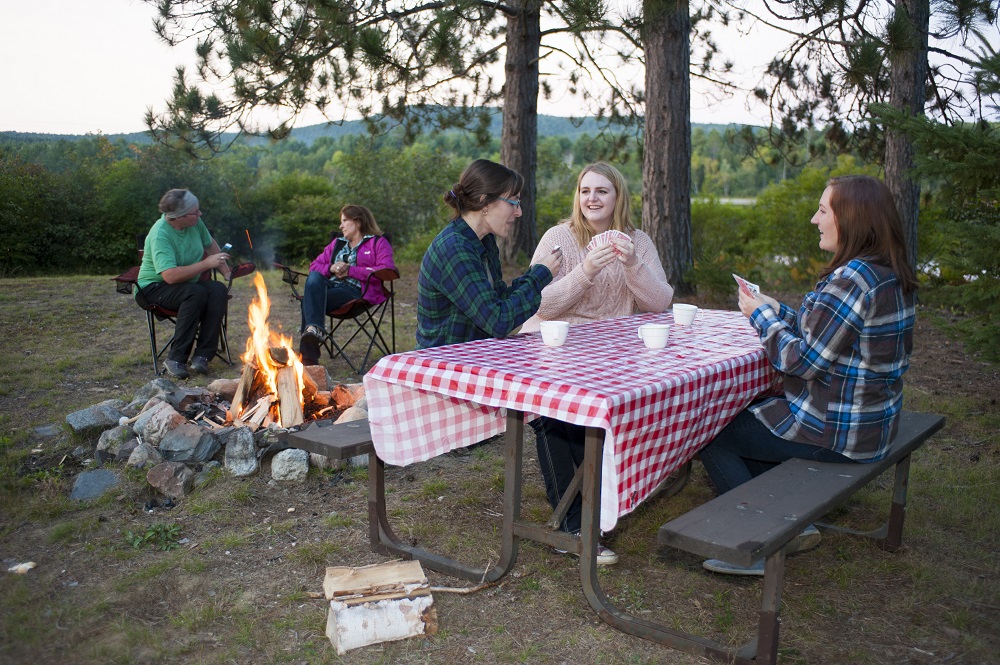
Loose-fitting pants and long-sleeved shirts will create a barrier between bugs and your skin. If they persist, keep the bugs at bay with insect repellent.
Remember to zip your tent behind you when you enter and exit. No one likes buzzing insects interrupting your peaceful sleep.
If you shudder at the thought of encountering biting insects in the great outdoors, try camping later in the summer and into the fall. Spring is considered “bug season” in Ontario.
~
4. Making meals
Whether on a stove or over the fire, most of your favourite meals can be cooked and enjoyed in the middle of the forest!
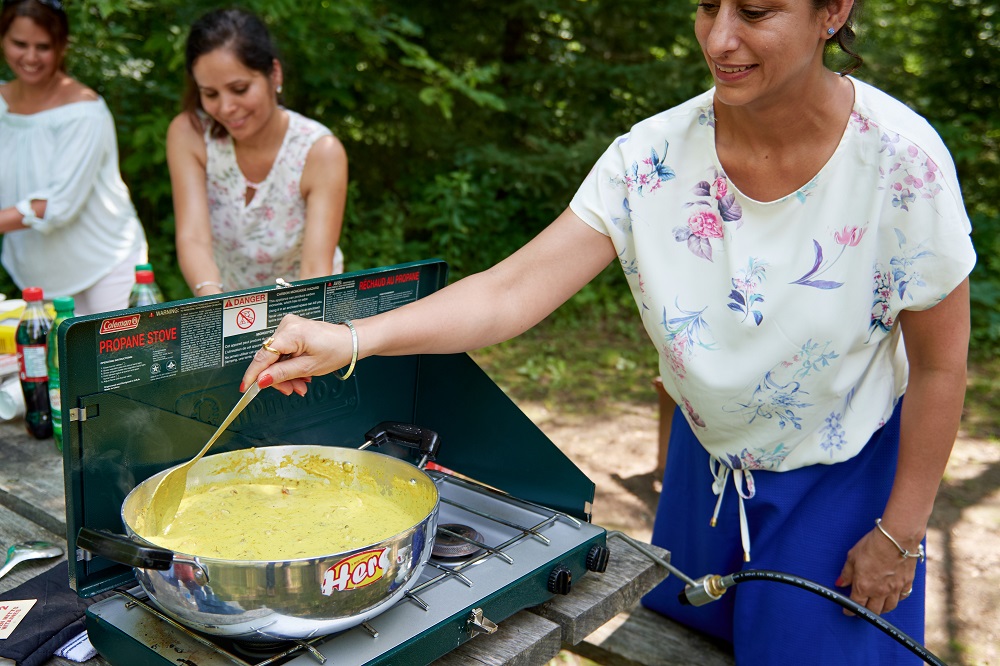
If you’ve invested in a camp stove, practice lighting it once or twice before venturing out. If you’re feeling especially keen, try cooking a meal using your new stove before you leave
Camp stoves are often hotter than your regular stove, so keep the flame low and stir your food often.
Once you’ve made it to your site, set your stove on a flat surface away from flammable materials, including your tablecloth.
Decided to give it a go over the fire?
Wait for the fire to burn down and take advantage of the hot coals for even cooking. Use the built-in camp grill found in your pit for balance.
Be patient. Cooking over the campfire often takes more time than cooking over the stove.
~
5. Setting up your tent
Take time and consideration when choosing your home away from home!
Just like the rest of your new equipment, practice setting up and taking down your tent before arriving at the park.
It’s the best time to check for any rips or tears, and to ensure all parts are present. You don’t want to find a hole in your tent in the middle of a downpour!
Once you arrive at your campsite, do a bit of surveying. Find a nice, flat spot for your tent. Avoid any roots or rocks (your back will thank you), and plan for your tent to be AT LEAST six feet away from your fire pit.
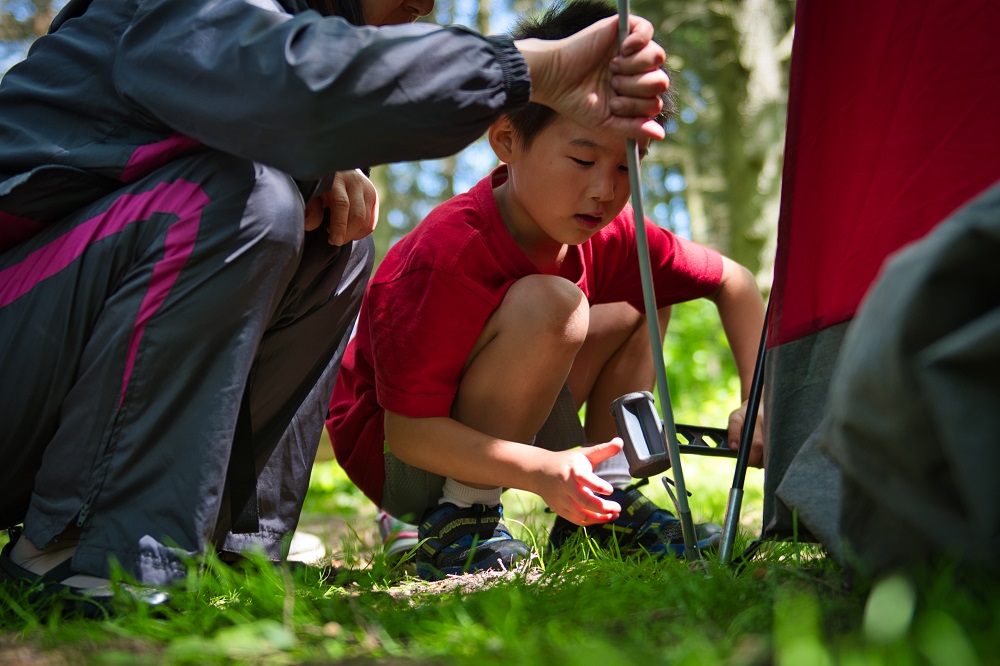
Once your tent is set up, peg it down using a mallet. Mallets will prevent pegs from getting bent or deformed, and will allow you to reuse them over and over again.
~
We wish you a wonderful first camping experience!


